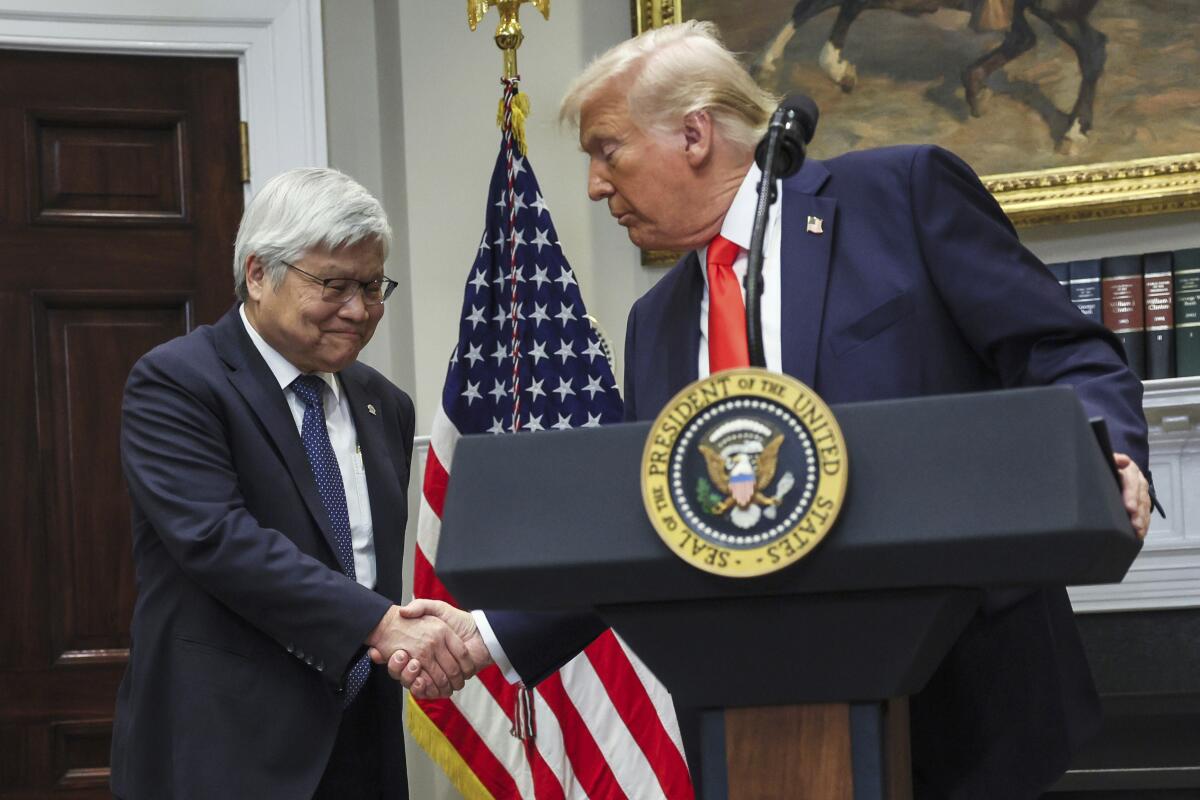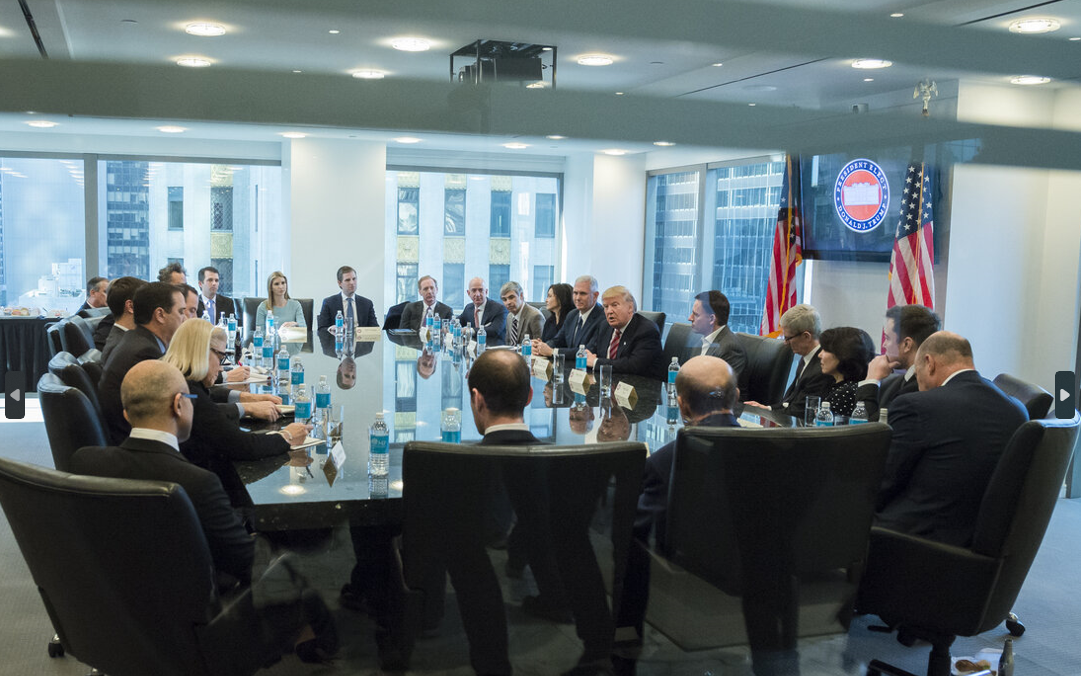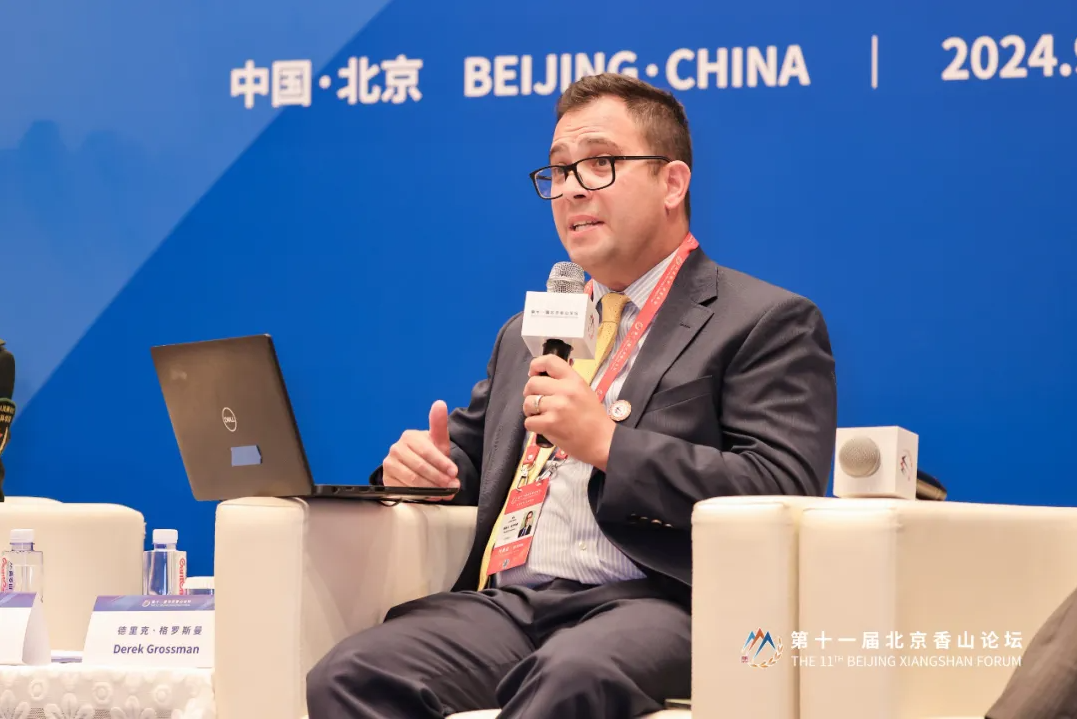
Shao Yuqun, Director, Institute for Taiwan, HK and Macau Studies, Shanghai Institutes for International Studies
Apr 11, 2025
If the Trump administration remains oblivious to the dangers and provocations of Lai Ching-te’s policies, the confrontation between Beijing and the United States over the island will intensify.

Li Zheng, Assistant Research Processor, China Institutes of Contemporary International Relations
Jan 13, 2025
The incoming administration in the United States is expected to intensify export controls on China and strengthen measures to block overseas markets for Chinese technology products. However, Donald Trump’s new team, steered by his pragmatic approach, may ease the pressure in some sectors.

Zhao Minghao, Professor, Institute of International Studies at Fudan University, and China Forum Expert
Jan 13, 2025
To a large degree, the new agglomeration is the result of Washington’s “great power competition” strategy. While it looks a bit like the military-industrial complex of the Cold War era, it is truly a different entity, but it’s one whose long-term impact on China-U.S. ties must be understood.
Zhao Minghao, Professor, Institute of International Studies at Fudan University, and China Forum Expert
Dec 24, 2024
The recent prisoner swap and forward movement on illicit drugs by China and the United States demonstrates that the two powers can make stabilizing progress together when they put their minds to it. But more uncertainty is on the way, as Donald Trump returns to the White House.
Shao Yuqun, Director, Institute for Taiwan, HK and Macau Studies, Shanghai Institutes for International Studies
Dec 20, 2024
America’s China policy, characterized by major-power competition, has had a subtle yet significant influence on the Taiwan question. The next U.S. administration, whether led by Kamala Harris or Donald Trump, is likely make changes. The devil will be in the details.

Zhao Minghao, Professor, Institute of International Studies at Fudan University, and China Forum Expert
Dec 20, 2024
Increased cooperation among Quad countries and partners in the Indo-Pacific region poses a challenge for Chinese diplomacy. The new U.S. president will not only inherit the security framework built under Joe Biden, but is likely to harden it even further. Thus, China has reason to worry that tensions will rise and that new hot spots will be created.

Dec 20, 2024
Daniel Russel is vice-president for international security and diplomacy at the Asia Society Policy Institute. He previously served as special assistant to U.S. President Barack Obama and Assistant Secretary of State for East Asian and Pacific affairs at the U.S. State Department from 2013 to 2017. He was a major figure in the Obama administration's "pivot towards Asia" strategy. In a recent interview with James Chau of China-US Focus in Tokyo, Daniel Russel shares his concerns on U.S.-China rivalry in new technologies and its impact on bilateral relations and the globe as well.
Chen Jimin, Guest Researcher, Center for Peace and Development Studies, China Association for International Friendly Contact
Nov 22, 2024
Donald Trump’s victory in the 2024 presidential election is worrisome. People-to-people exchanges between China and the United States faced many challenges during his first term, and the Republican Party Platform is not friendly to outsiders. There could be stormy weather ahead.
Jin Chenyi, Assistant Fellow, China Institute of International Studies
Nov 18, 2024
In small but steady degrees, the United States is undercutting its stated commitment to “one China” by subtly modifying its words. The meanings it has added in diplomatic discourse do not promote confidence that it will continue to honor the agreements it has made. On the contrary, U.S. actions belie those agreements.

Sep 30, 2024
Derek Grossman is a senior defense analyst at RAND focused on a range of national security policy and Indo-Pacific security issues. He closely tracks intensifying U.S.-China competition throughout the region, including Asia and Oceania. Grossman was interviewed recently by Wang Zhijin, a reporter for China-US Focus, at the recent Xiangshan Forum in Beijing.